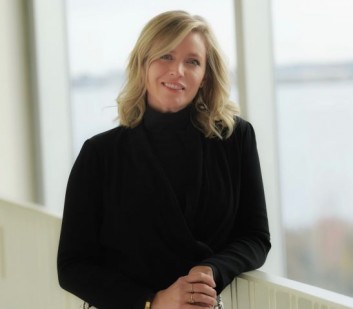
Valerie Karr
Area of Expertise
Disability rights, inclusive education, human rights education and advocacy, inclusive development, youth inclusion movements, families and culture, program development for autism spectrum disorder, research methods, systems mapping, and inclusive monitoring and evaluation.
Degrees
PhD, Health and Behavior Studies, Intellectual Disability and Autism, Columbia University
MEd, Elementary Education, Special Education, Plymouth State University
BS, Rec. Management & Policy, Therapeutic Recreation, University of New Hampshire
Professional Publications & Contributions
- Karr, V. L. (2014, December). Children with disabilities and asylum policies. Presentation at "Migrant children in the 21st century" conference, Cagliari, Italy.
- Karr, V. L., & Mitchell, D., Eds. (in press). Crises, conflict, and disability. London, UK: Routledge Press.
- Karr, V. L., & Meyers, S. (2013). "Acceptance or acceptability: Youth inclusion in today’s schools." In Azzopardi, A. (Ed.), Youth: Responding to lives - An international handbook. Boston, MA: Sense Publishers.
- Karr, V. L., & Meyers, S. (2013). Reactions to the rights-based approach: Contextualising the CRPD in Cambodia. Journal of Disability and International Development, 2013 (2), 22-28.
- Meyers, S., Karr, V. L., & Pineda, V. (2014). Youth with disabilities in law and civil society: Exclusion and inclusion in public policy and NGO networks in Cambodia and Indonesia. Disability and the Global South, 1(1).
- Meyers, S., Pineda, V., & Karr, V. L. (2014). Governments are not enough: Disability, development, and the role of broad based planning. Journal of Disability and International Development, 2014(1), 32-36.
Additional Information
With expertise in inclusive development, education, human rights, youth and disability, and a track record of effective rights-based advocacy internationally, Dr. Valerie Karr’s research and advocacy focuses on ensuring the inclusion of marginalized populations in the development agenda. Framed by the “No One Left Behind” movement incorporated into the Sustainable Development Goals, one key research project seeks to assess if development partners are living up to their commitments in targeting assistance to vulnerable groups (persons with disabilities and vulnerable children) and with what results. Transdisciplinary in nature; Dr. Karr’s work spans diverse fields such as international development, public policy, government, economics, sociology, and education. Through academic and consulting work she engages directly on development initiatives at many levels such as governments, ministries, schools, and civil society organizations, such as the USAID, United Nations, the World Bank, and country-level work in Rwanda, Tanzania, Malawi, Egypt, Cambodia, Qatar, Bangladesh, Cambodia, Nepal, Ghana, Saudi Arabia, Ecuador, Tajikistan, Liberia, and Syria.
Publications include a recent article in Knowledge Management for Development entitled “No one left behind: a review of disability inclusive development efforts at the World Bank”, co-editing of Crisis, Conflict, and Disability: Ensuring Equality, UNICEF's human rights education manual for youth with disabilities based on the UN Convention on the Rights of Persons with Disabilities (UNCRPD), co-authorship of Human Rights. YES!, and the development of participatory human rights education curricula.
Current course load and student engagement work includes topics such as systemic thinking for social change, the use of innovations and model development in policy and practice to improve inclusion and social and economic development opportunities for all, and leading transdisciplinary research teams comprised of diverse researchers and supervision of doctoral students.
